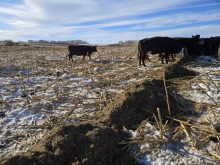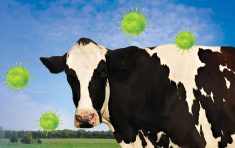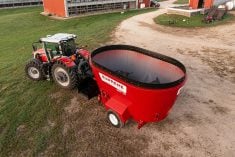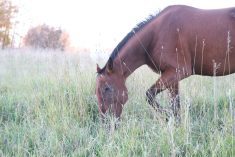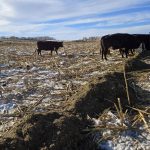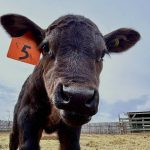Palm kernel expeller (PKE) is a byproduct of palm-oil processing and a popular ingredient in dairy rations around the world.
But research shows PKE contains concentrations of elements that may be harmful to cows.
We analyzed the chemical composition of several batches of PKE imported into New Zealand over two years. We found it contained concentrations of iron, magnesium and phosphorus that exceeded safe levels for dairy cattle health. Some batches contained concentrations of aluminium, copper, sulphur and potassium within 90 per cent of their safe limits.
Read Also

THROWBACK: Pro tips for a calving crisis
This article from 2024 walked farmers through common calving issues, and when the dystocia is serious enough that you need…
These elements may have both positive and negative effects on the health of dairy cows and soils. But there is no monitoring and our research shows the chemical composition of different batches imported into New Zealand is highly variable.
Copper in PKE may be helpful in treating widespread deficiencies of this element in New Zealand’s farming systems. Similarly, magnesium in PKE may offset the need to supplement this element for lactating dairy cows.
PKE may be a source of soil nutrients. It contains high concentrations of phosphorus, which will improve pasture growth when deposited on the soil in manure.
However, the concentrations of iron, aluminium, potassium and sulphur in PKE may cause nutrient imbalances in dairy cows. The effects on dairy farms, soils and milk are unknown. Other evidence suggests these chemical elements, when eaten by cows, may end up in milk.
Environmental regulations in New Zealand require farmers to quantify every input to meet nutrient budgets and stay within freshwater quality standards. When the composition of PKE changes batch by batch, it becomes difficult to quantify farm inputs and meet farm-nutrient budgets.
Fonterra and Synlait, two of New Zealand’s largest dairy companies, actively discourage the use of PKE because it can change milk composition, giving it a higher fat content.
However, it remains widely used due to feed shortages. Potentially, PKE use could be offset by reusing some of the more than two million tonnes of food and food-processing waste New Zealand produces annually.
Even if PKE were proven beneficial to agriculture, there is still the ethical question of supporting an industry with unsustainable production patterns.
The production of palm oil has been linked to deforestation in tropical rainforests in Indonesia, as more and more land is needed to produce this increasingly common commodity used in everyday foods and personal care products.
Even when PKE is certified by the Roundtable on Sustainable Palm Oil, a certification program for palm oil growers, suppliers and users, research has shown this palm oil is no different than any other in terms of social, environmental and economic outcomes for people and the environment.
In 2015 and 2019, Indonesia gained media attention for forest fires to clear land for palm oil production, resulting in air pollution in neighbouring countries.
An audit by the Indonesian government in 2018 found 81 per cent of palm oil plantations were breaching environmental regulations. Breaches included failing to obtain permits, not complying with sustainability standards and encroachment into surrounding protected forests.
Support of this industry is controversial, especially when there are potential alternatives.
New Zealand imports more PKE than the entire European Union. There are possible alternatives made in New Zealand that now end up in landfills, including biowaste from the food and beverage sector. This waste includes leftover products from potato processing, wine making, brewing and other food-processing industries.
By importing PKE, New Zealand is forgoing the opportunity to use these locally produced waste materials as animal feeds and to avoid greenhouse gas emissions produced when they are sent to the landfill.
There is an opportunity here to repurpose food waste and the nutrients it contains.
Hadee Thompson-Morrison, Brett Robinson, and Sally Gaw are environmental chemistry researchers at New Zealand’s University of Canterbury.



